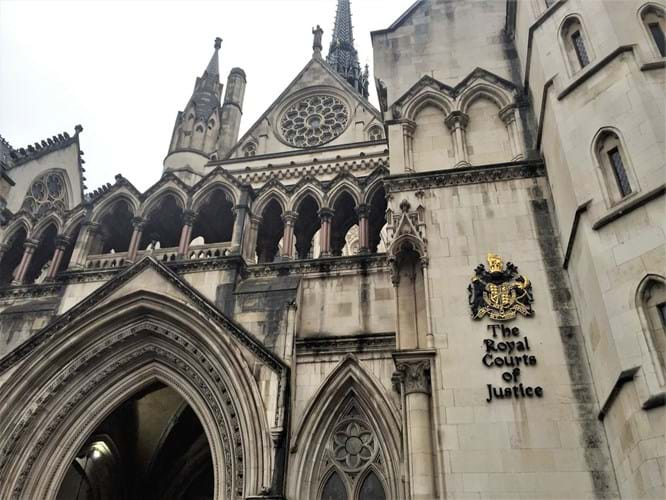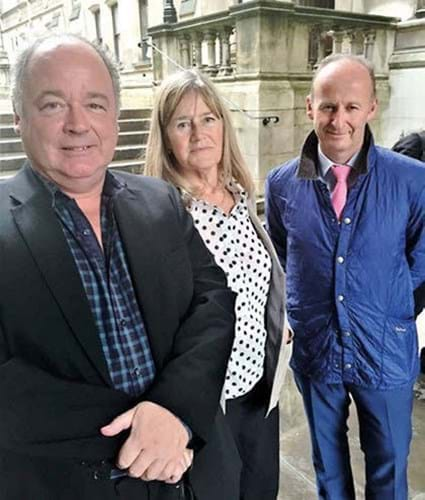
A High Court judge has turned down an attempt by a group of dealers and collectors of antique ivory to block the Ivory Act 2018 coming into force.
Mr Justice Robert Jay has, however, declared himself "sympathetic" to arguments that FACT (the Friends of Antique and Cultural Treasures Limited) made in court in October.
Meanwhile DEFRA, the defendant in the judicial review, has said it will "press ahead" with bringing the act into force.
Judge's ruling
In a judgement of more than 100 pages published on Tuesday, November 5, the judge agreed with several of FACT's arguments made against DEFRA's (the Department of the Environment, Food and Rural Affairs) justification of the act's trade ban (see below).
In particular, he was critical of the government’s assessment of the act’s likely effects on collectors and dealers.
Mr Justice Robert Jay also concluded that the act was unlikely to have any effect on the illegal trade of ivory in the UK and that it was not clearly established it would influence ivory sales in other countries.
However, he dismissed the challenge on the basis of DEFRA's argument that the act would show the UK's leadership on anti-poaching and show solidarity with other countries with ivory trade bans, including the US and China.
Mr Justice Robert Jay made this ruling, he said, "with some regret, because I remain sympathetic to [FACT's] case".
Minister reaction
After the judgement's publication, DEFRA said the government "will now press ahead to bring into force the ivory ban as soon as practicably possible, with a likely implementation date of early next year".
Environment secretary Theresa Villiers said: "I welcome today’s ruling by the High Court which upholds the UK’s commitment to ban the ivory trade.
"We will move forward and make sure the ban comes into operation as soon as possible to protect wildlife and the environment."
Deadline for appeal
FACT is now "considering its options" on whether to appeal the judgement – a move that would involve further fundraising from the antiques trade. It has until November 12 to seek permission to appeal.
In taking but losing the judicial review of the act, FACT must pay DEFRA's legal costs as well as its own, though payment is likely to be deferred until after any appeal.
Richard Pike, a partner at Constantine Cannon, the lawyers acting for FACT, told ATG: “We are, of course, disappointed with the outcome but are pleased that the judge has agreed with a number of our submissions… we are studying the judgement carefully and considering our options.”
Judge's choice
The options in front of Mr Justice Robert Jay were to find the act's trade ban, involving much antique ivory, to be reasonable, or that it was 'disproportionate' and therefore the government would need to formulate new legislation.
One legal source told ATG that the judgement was not a surprise, as it was "always difficult for a 'first-instance judge' to overturn an act of parliament. To succeed might always require taking the case to appeal, and raising the funds that this would involve."
'Understates the act's impact'
At the hearing in October, FACT had argued that its calculation of the “quantifiable economic loss” to dealers and collectors was £390m, far higher than estimates by DEFRA.
This point registered with Mr Justice Robert Jay, who found the government’s Impact Assessment “considerably understates the impact of the act… on businesses, and fails completely to deal with collectors, whether they be amateur or expert”.
FACT directors Paul Moss, former owner of Sydney L. Moss, Rosemary Bandini and Alastair Gibson of Gibson Antiques were present in court, with Moss noting afterwards that the judge had given the antiques trade "a sympathetic hearing".

FACT directors outside the Royal Courts of Justice, (l-r) Paul Moss and dealers Rosemary Bandini and Alastair Gibson.
Last ditch attempt
The challenge by FACT is a last-ditch attempt to block the act, which received Royal Assent in December 2018 after fast progress through both houses of parliament.
The Ivory Act 2018 as it stands overrules current EU measures that allow the trade in pre-1947, ‘worked’ ivory objects.
‘Lack of empirical evidence’
During the High Court hearing, Tom de la Mare QC for FACT had highlighted the lack of “empirical evidence” connecting demand for antique ivory with the modern poached variety and the act’s likely punitive effects on collectors and dealers.
Counsel for DEFRA, Sir James Eadie, acknowledged the lack of proof linking modern with antique ivory but argued that the government had “no need to prove a causal link”.
Instead, Sir James argued the act would succeed in its aim of tackling modern poaching and show UK global leadership in the matter.
Ivory Act's trade exemptions
The act’s exemptions, which FACT argued in court were “arbitrary”, include:
• pre-1918 portrait miniatures
• items with less than 10% ivory by volume made prior to 1947 (which will need to be registered), aka the ‘de minimus’ rule
• ‘rare and important items’ made before 1918
FACT’s QC, Tom de la Mare, had argued that an exemption for items traded between accredited museums and for musical instruments containing less than 20% ivory made prior to 1975, were “strange”.





